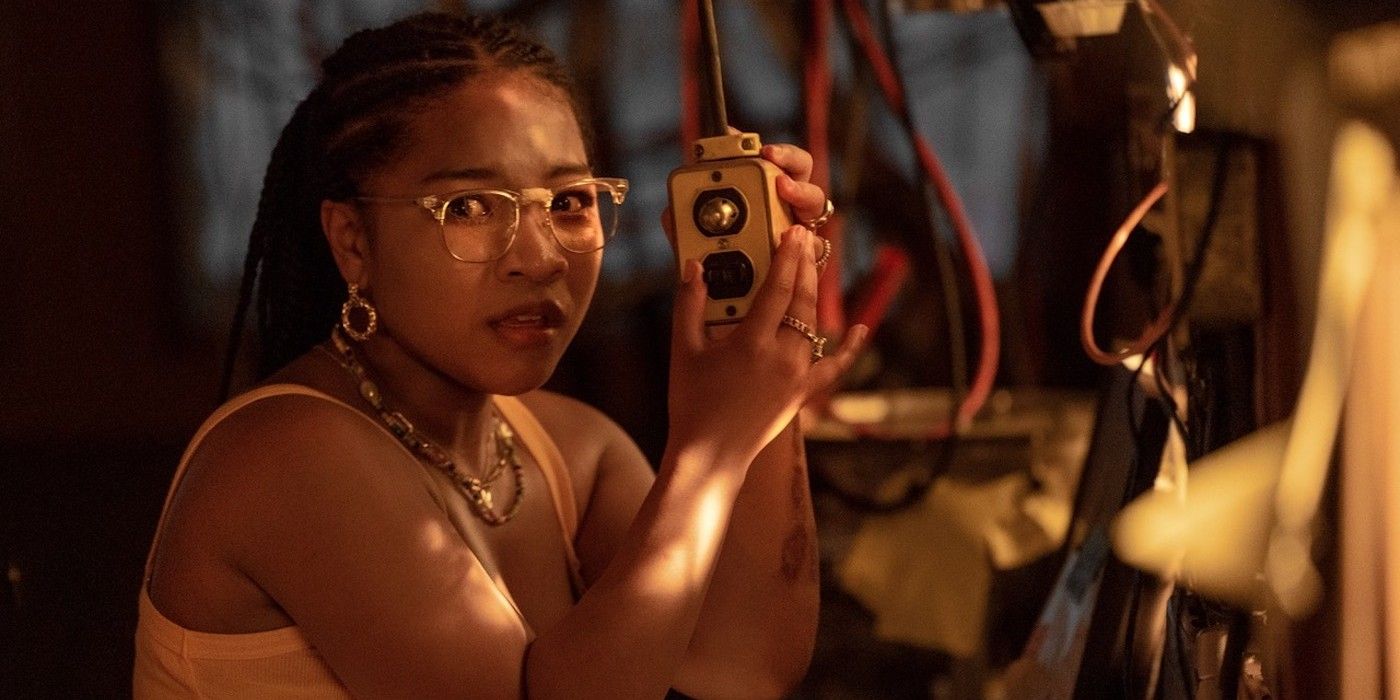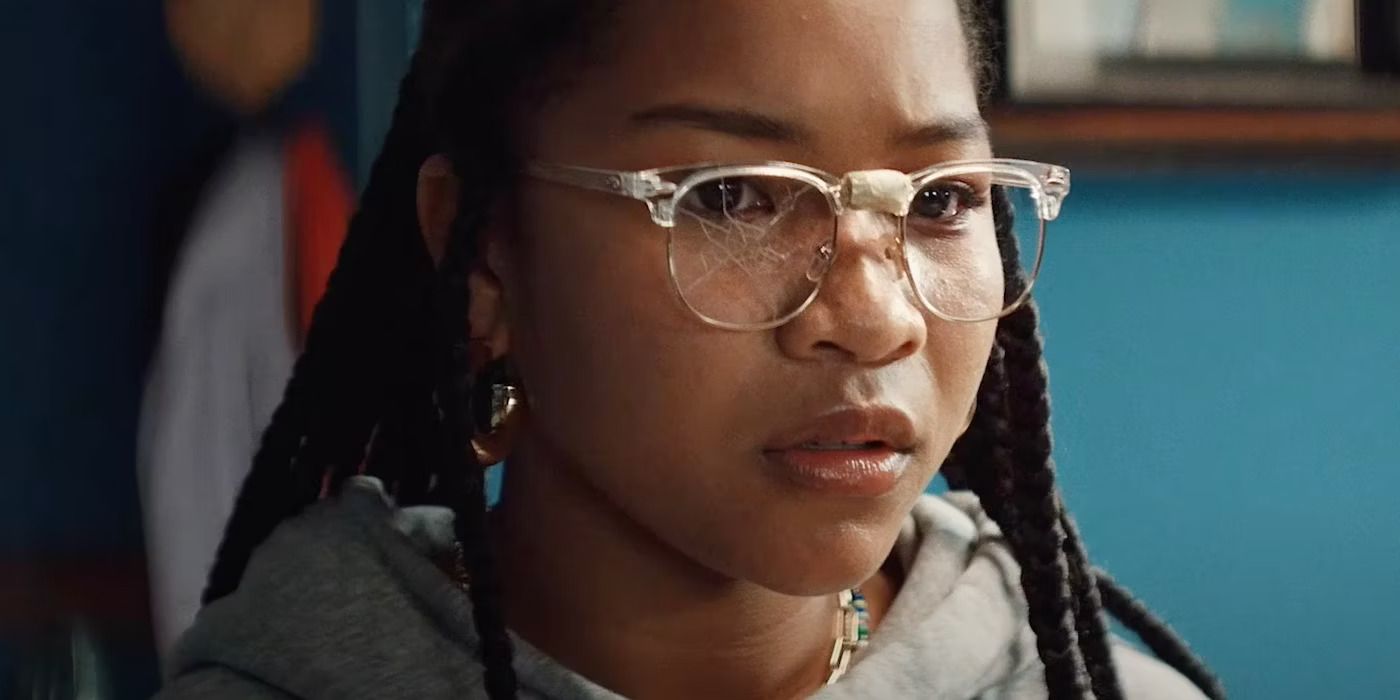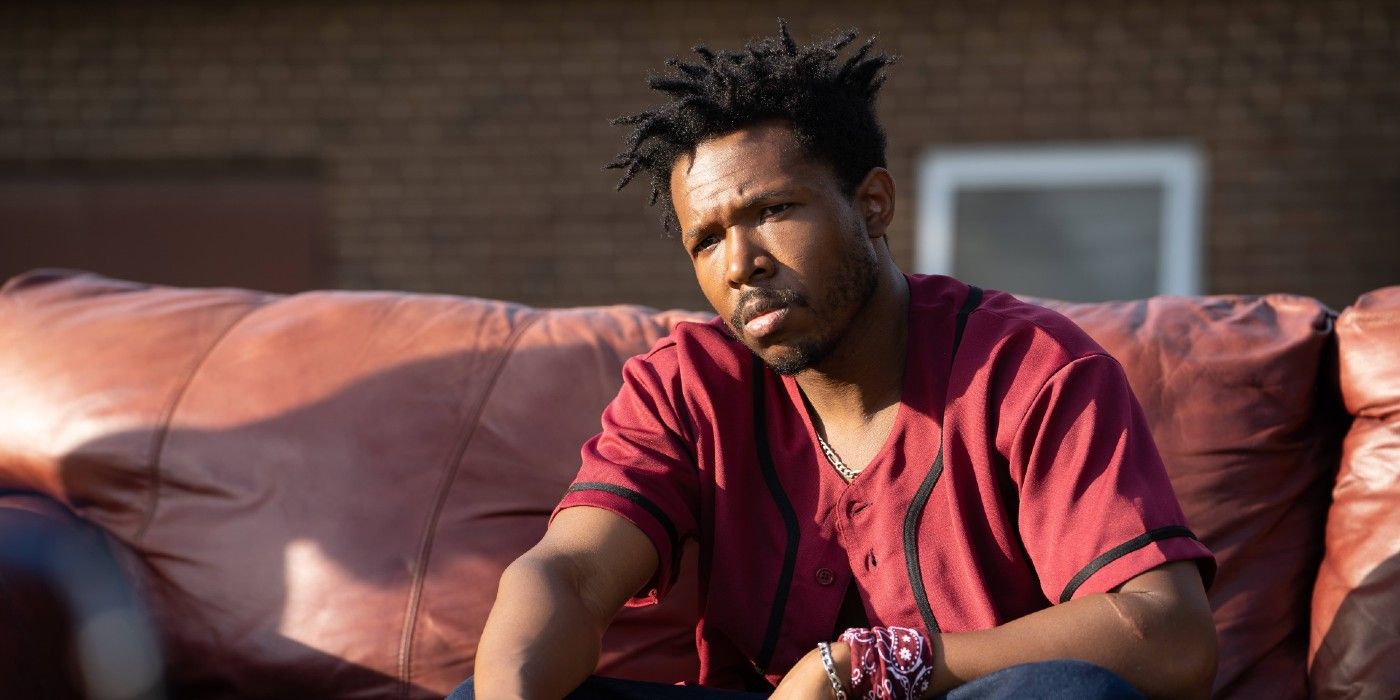Mary Shelley's classic 1818 novel Frankenstein has been adapted so many times in so many different formats that it's tough to imagine anyone finding a satisfying new angle on it. Writer-director Bomani J. Story doesn't entirely succeed with his directorial debut The Angry Black Girl and Her Monster, but he puts enough of his own stamp on the story to make it feel fresh and contemporary. The familiar beats take on new meaning when transposed from Shelley's upper-class 18th-century Europe to the present-day urban United States.
That's where teenage Vicaria (Laya DeLeon Hayes) lives with her father, Donald (Chad L. Coleman), in a rundown apartment complex plagued by gangs and drug dealers. Both Vicaria's mother and brother fell victim to gang violence, and Vicaria has decided that, as she puts it, "death is a disease," and she plans to find the cure. To that end, she's set up her own laboratory in a condemned section of the complex and has been stealing bodies to study and use in her experiments. After her brother Chris (Edem Atsu-Swanzy) is killed, she takes his body, too, determined to bring him back to life.
Anyone familiar with Frankenstein or horror movies, in general, will know that Vicaria bringing Chris back to life is a bad idea, and the result turns out just as horrifically as expected. Story cleverly mixes elements of gritty inner-city drama with vintage horror-movie moments, especially in the scene of Vicaria reanimating Chris' corpse. Like Victor Frankenstein before her, she harnesses the power of electricity, and Story shows the current running through wires into Vicaria's equipment like a scene out of James Whale's 1931 Universal Frankenstein adaptation. Vicaria never proclaims, "It's alive!" But she does have a slightly maniacal laugh, and her young neighbor Jada (Amani Summer) nicknames her "mad scientist."
But The Angry Black Girl and Her Monster isn't a Universal monsters pastiche in the vein of something like Tim Burton's Frankenweenie. It's much more serious than that, embracing the tragic themes of Shelley's novel and its various adaptations. Vicaria has already experienced plenty of tragedy as The Angry Black Girl and Her Monster begins, and bringing Chris back from the dead only brings her more woe. Although he's alive, he seems to have come back damaged -- both mentally and physically --and in his first encounter with other people, he attacks a runner for local drug dealer Kango (Denzel Whitaker).
Vicaria resents Kango for selling her father the drugs that he's become dependent on since her mother's death and for sending Chris into the situation that got him killed. The Angry Black Girl and Her Monster sets up an awkward dynamic as Kango forces Vicaria to work for him to make up for the drugs he lost in the monster's attack. He's alternately threatening and supportive. He never quite becomes a villain or an ally. Rather than coming off as a complex character, he's just inconsistent, and that robs The Angry Black Girl and Her Monster of some of its tension.
The plotting in The Angry Black Girl and Her Monster may be uneven, but Hayes' performance is excellent, giving Vicaria the proper mix of angst and hubris to make her a worthy heir to Victor Frankenstein. She's righteously angry about the racism she experiences at the mostly white school she attends for high-level classes, and she's equally angry about people like Kango taking advantage of the desperation and poverty around them. At its best, The Angry Black Girl and Her Monster uses its horror elements to highlight and expand on the social issues its characters face in the tradition of movies like Candyman, The People Under the Stairs, and His House.
Everyone around Vicaria is struggling, from her addicted father to her pregnant best friend, Aisha (Reilly Brooke Stith), who's carrying Chris' baby while still trying to finish high school. The police are as much a looming, scary presence as the monster, leaving only senseless death in their wake whenever they arrive. The monster should be a personification of the anger referenced in the title, but his targets are a bit haphazard, and Story never makes it clear whether Chris is fully in control of his violent rage. He's able to speak in short, halting sentences, but he doesn't seem like he's entirely present mentally.
As Chris finds more victims, The Angry Black Girl and Her Monster showcases some nasty-looking practical effects and suspenseful chases, but it's more moody than scary. That fits perfectly with the Frankenstein tradition, which is more about the horrors found in the human soul than about jump scares or gore. Just getting through each day is scary enough for Vicaria and the people in her community. A literal monster is merely one more danger to face.
The Angry Black Girl and Her Monster opens Friday, June 9, in select theaters and premieres June 23 on VOD.




